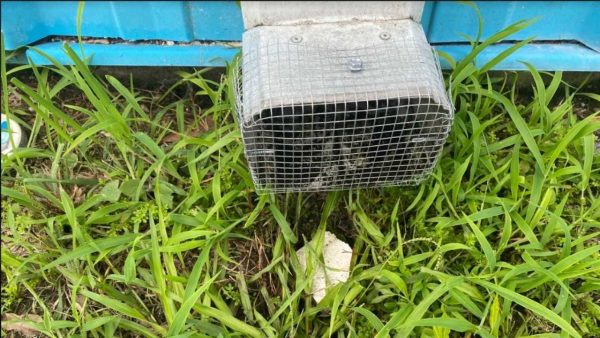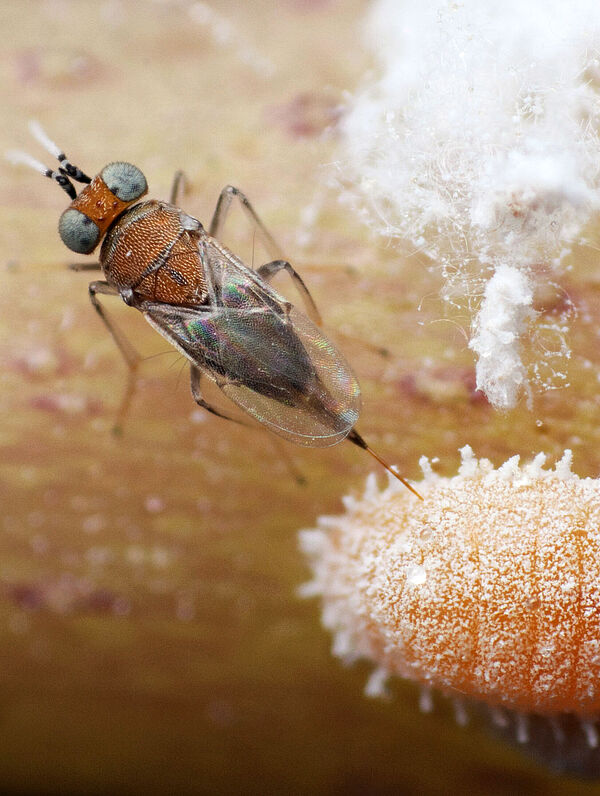Best Pest Control in Charlotte County for Your Property and Business
Wiki Article
Find Out About the Latest Advances in Parasite Control and How to Apply Effective Treatment Solutions
In recent years, the area of pest control has actually witnessed substantial innovations, driven by the demand for effective and lasting treatment services. Innovative approaches such as Integrated Bug Management (IPM) integrate environment-friendly practices with sophisticated modern technology, improving both efficacy and environmental duty. Moreover, the assimilation of smart modern technologies and DIY techniques has actually equipped people to deal with parasite issues extra effectively. As we check out these growths, it ends up being vital to comprehend exactly how ideal to carry out these strategies in various settings to achieve optimal results. The implications for bug monitoring techniques can be transformative.Eco-Friendly Parasite Control Options
Recently, the need for eco-friendly parasite control choices has actually surged as organizations and property owners alike look for sustainable alternatives to typical chemical treatments. This shift is driven by expanding environmental awareness and a desire to reduce the wellness risks connected with artificial pesticides.

Eco-friendly parasite control approaches incorporate a variety of techniques that prioritize making use of all-natural materials and techniques. Integrated Pest Management (IPM) is one such method, integrating organic, social, and mechanical tactics to manage insect populations while decreasing dependence on chemicals (Wildlife removal services). This all natural technique stresses avoidance via environment control and the intro of all-natural predators, thus promoting a well balanced environment
An additional prominent choice is using organic pesticides stemmed from plants, which often tend to be much less dangerous to non-target organisms. Products like neem oil and diatomaceous earth have gained grip for their efficiency in managing bugs while presenting very little risks to human health and wellness and the setting.
Additionally, exclusion strategies, such as sealing entry factors and preserving cleanliness, play an essential role in environmentally friendly pest monitoring. By embracing these lasting methods, people and services can successfully manage parasites while promoting a healthier planet for future generations.
Smart Modern Technology in Bug Management
Advancement is reshaping the landscape of pest monitoring, with smart modern technology emerging as a crucial force in boosting performance and efficiency - Wildlife removal services. The combination of Internet of Things (IoT) tools, expert system (AI), and data analytics is changing how pest control professionals come close to problems
Smart catches geared up with sensors can discover pest task in real-time, sending out prompt signals to drivers. This enables for timely feedbacks, reducing damages and lowering the need for substantial therapies. In addition, AI algorithms examine historical data to anticipate parasite behavior, making it possible for positive treatments based on environmental conditions and invasion patterns.
Drones and computerized vehicles are additionally playing a considerable duty in parasite management, offering airborne evaluations of big locations, recognizing hotspots, and even distributing targeted treatments. These innovations not just enhance procedures yet additionally boost safety by limiting human exposure to possibly hazardous chemicals.
Additionally, mobile applications equip consumers to keep track of insect activity and access expert advice, fostering a collaborative approach to pest monitoring. Overall, the adoption of clever modern technology is establishing a new standard in pest control, stressing data-driven decisions and sustainable practices that ultimately profit both home owners and professionals alike.
Integrated Parasite Monitoring Techniques
Integrated Pest Monitoring (IPM) utilizes a holistic technique to pest control, integrating various strategies to properly handle insect populaces while minimizing risks to human wellness and the atmosphere. IPM focuses on comprehending the pest life cycle, their all-natural adversaries, and the ecological community in which they thrive.Among the fundamental parts of IPM is checking pest populaces with regular examinations and data collection. This permits the identification of parasite thresholds, establishing when intervention is essential. Cultural techniques, such as crop environment, rotation, and hygiene manipulation, are necessary in lowering pest occurrence and promoting plant health.
Mechanical controls, including obstacles and catches, are additionally important in IPM. These techniques can literally remove or deter insects without making use of chemicals. When necessary, the cautious application of chemical controls is utilized, concentrating on targeted therapies that minimize environmental effect.
Education and cooperation amongst stakeholders, including farmers, insect control experts, and the neighborhood, are essential for the effective application of IPM methods. By focusing on lasting techniques, IPM not only addresses pest issues yet also fosters a healthier environment.
Biological Control Approaches
Countless organic control approaches are significantly recognized for their effectiveness in managing pest populations while promoting environmental equilibrium. These methods harness all-natural killers, parasites, and microorganisms to decrease pest numbers without relying on artificial chemicals. For circumstances, the intro of ladybugs can properly regulate aphid populaces, while nematodes target soil-dwelling bug larvae.Furthermore, the use of microbial pesticides, such as Bacillus thuringiensis (Bt), provides an environmentally pleasant choice for taking care of caterpillar bugs. These products specifically target pest varieties, decreasing damage to beneficial pests and pollinators. Conservation Wildlife removal services biological control highlights boosting environments for all-natural opponents, such as birds and advantageous pests, therefore motivating their visibility in farming systems.
Research remains to reveal ingenious methods within this area, such as making use of scents to interrupt pest mating patterns or the growth of biocontrol representatives via genetic modification. Carrying out these methods can cause lasting pest monitoring practices that alleviate the reliance on chemical interventions, inevitably fostering much healthier ecological communities. As understanding of these strategies grows, they are coming to be integral elements of incorporated pest administration (IPM) techniques, using an equilibrium between efficient bug control and environmental stewardship.
DIY Insect Control Solutions
As homeowners look for effective means to take on pest issues, do it yourself pest control remedies have obtained appeal for their ease of access and cost-effectiveness. These approaches encourage individuals to address invasions making use of conveniently offered materials and techniques, commonly without the requirement for specialist treatment.
In addition, maintaining appropriate hygiene and normal evaluations can stop parasite entry and nesting (Wildlife removal services). Basic practices, such as securing cracks, removing food sources, and decluttering, can significantly decrease bug populations. Traps, both homemade and commercially available, can likewise use reliable remedies for surveillance and controlling particular insects like rodents or bugs

Verdict
The combination of environment-friendly parasite control options, smart technology, and ingenious administration approaches presents a detailed technique to reliable parasite monitoring. By embracing Integrated Pest Monitoring (IPM) and making use of biological control approaches, along with do it yourself remedies, sustainable and responsible insect control can be accomplished. These innovations not just improve the effectiveness of bug monitoring techniques however likewise add to a healthier atmosphere. Carrying out these methods promotes a well balanced environment while successfully resolving pest populaces.Environment-friendly insect control methods incorporate a variety of strategies that focus on the use of all-natural compounds and practices. Integrated Parasite Administration (IPM) is one such approach, incorporating biological, social, and mechanical strategies to take care of bug populations while reducing dependence on chemicals. As understanding of these strategies grows, they are becoming indispensable components of incorporated insect administration (IPM) approaches, offering an equilibrium in between effective insect control and ecological stewardship.
The integration of green pest control choices, smart innovation, and cutting-edge management methods offers a detailed strategy to effective parasite administration. By accepting Integrated Parasite Management (IPM) and using organic control approaches, alongside DIY services, responsible and sustainable bug control can be attained.
Report this wiki page